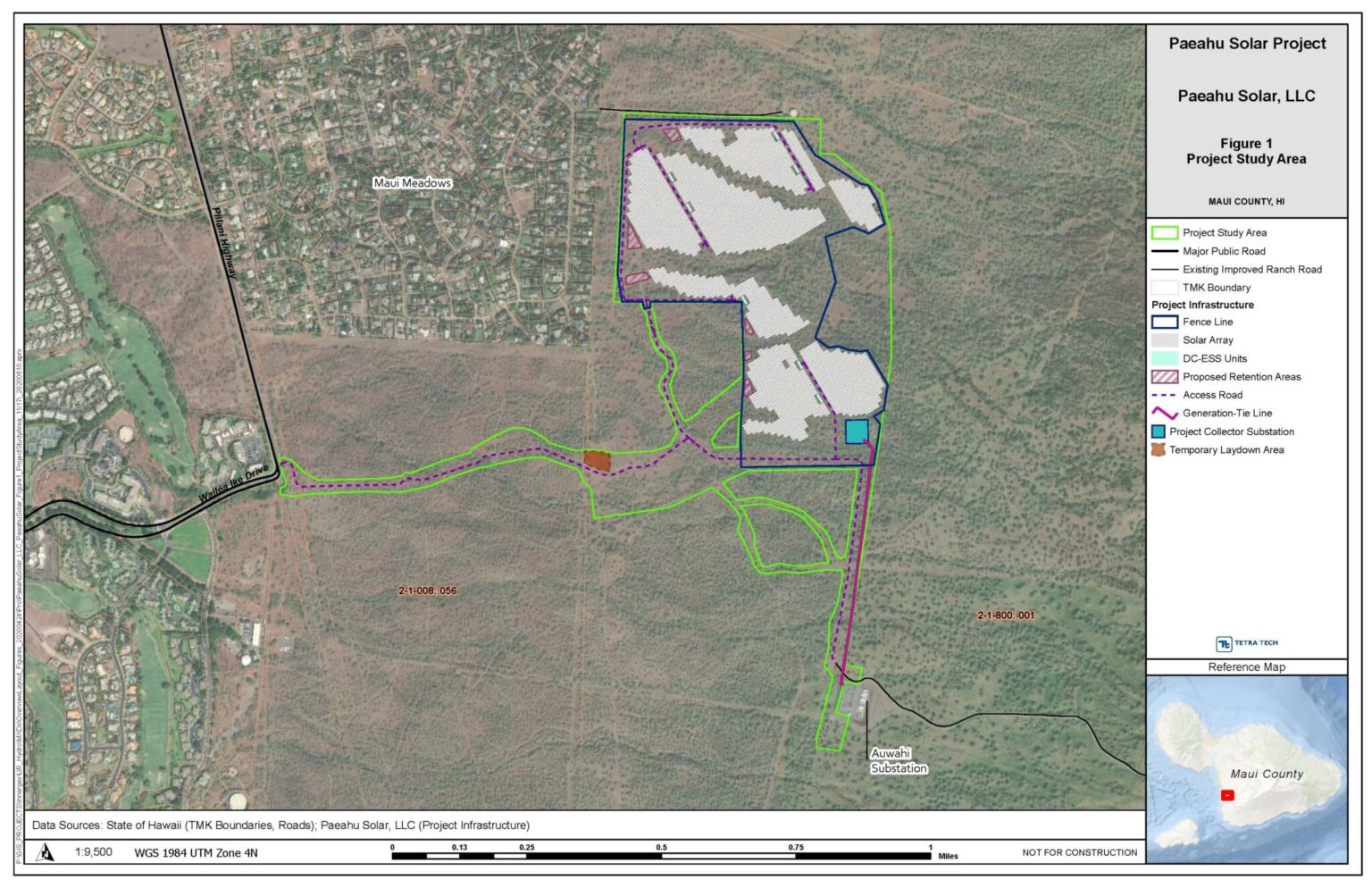Hawaiian Electric Company Inc. and Innergex Renewable Energy announced the termination of an agreement to construct the Paeahu Solar project in South Maui.
Initially proposed in 2018, the solar and battery storage initiative faced substantial delays due to legal challenges and issues related to COVID-19, including increased costs and supply-chain disruptions.
Paeahu Solar was designed to be a key part of Hawaiian Electric’s strategy to replace imported fossil fuels on Maui with local, renewable resources. Plans called for a 15-megawatt solar array and 60-megawatt-hour storage system on a 200-acre site leased from Ulupalakua Ranch. The setup aimed to supply clean energy to approximately 6,900 homes on Maui every year.
“It’s unfortunate we aren’t able to move forward with Paeahu Solar, which was a key component of Hawaiian Electric’s effort to retire fossil fuel generators on Maui, reduce greenhouse gas emissions, and stabilize customer costs,” said Mike DeCaprio, vice president of power supply for Hawaiian Electric.
DeCaprio noted the sense of urgency surrounding Maui’s future energy needs, in a statement.
“Maui is facing critical deadlines for bringing on new resources by the end of the decade and the loss of Paeahu and other projects is concerning,” he said.
Of five solar and energy storage projects approved by the Public Utilities Commission for Maui over the past five years, only AES Corp.’s 60-megawatt Kuihelani project remains in progress.
Hawaiian Electric continues to face a 2028 deadline to retire its Kahului Power Plant due to environmental regulations. A lack of replacement parts for HECO’s Maalaea Power Plant also casts doubt on that facility’s operational viability beyond 2030.
“Innergex is grateful to the many residents, partners, businesses, and community organizations who supported our efforts to bring new solar power resources to Maui,” said Ed Maddox, senior director-development at Innergex, in a statement.
He added that Innergex remains committed to contributing renewable energy projects to Hawai‘i’s grid, but the termination of the Paeahu agreement only underscores the challenges in transitioning away from fossil fuels amidst legal and pandemic-related obstacles.




